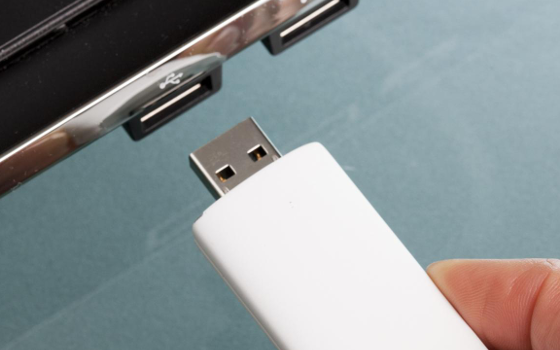The disposable test could be used for HIV patients to monitor their own treatment.
Furthermore, the technology could enable patients with HIV to be managed more effectively in remote locations.
New research, published in the journal Scientific Reports, shows the device is not only very accurate, but can produce a result in under 30 minutes.
The new technology monitors the amount of virus in the bloodstream. This is crucial to monitoring a patient's treatment.
Current tests to detect the amount of virus take at least three days, often longer, and involves sending a blood sample to a laboratory. In many parts of the world, particularly those with the highest number of HIV infections, such testing does not exist at all.
The current treatment for HIV, called anti-retroviral treatment, reduces virus levels to near zero.
However, in some cases the medication may stop working - perhaps because the HIV virus has developed resistance to the drugs. The first indication of this would be a rise in virus levels in the bloodstream.
Furthermore, regularly monitoring of viral levels enables healthcare teams to check a patient is taking their medication. Stopping medication fuels HIV drug-resistance, which is an emerging global problem.
Viral levels cannot be detected by routine HIV tests, which use antibodies, as these can only tell whether a person has been infected.
Dr Graham Cooke, senior author of the research from the Department of Medicine at Imperial explained: "HIV treatment has dramatically improved over the last 20 years - to the point that many diagnosed with the infection now have a normal life expectancy.
"However, monitoring viral load is crucial to the success of HIV treatment. At the moment, testing often requires costly and complex equipment that can take a couple of days to produce a result. We have taken the job done by this equipment, which is the size of a large photocopier, and shrunk it down to a USB chip."
Dr Cooke added that this technology, although in the early stages, could allow patients to regularly monitor their virus levels in much the same way that people with diabetes check their blood sugar levels.
The technology could be particularly powerful in remote regions in sub-Saharan Africa, which may not have easy access to testing facilities. Finding out quickly if a patient, particularly a baby, is infected with the virus is crucial to their long term health and survival.
The device, which uses a mobile phone chip, just needs small sample of blood. This is placed onto a spot on the USB stick. If any HIV virus is present in the sample, this triggers a change in acidity which the chip transforms into an electrical signal. This is sent to the USB stick, which produces the result in a programme on a computer or electronic device.
In the latest research, the technology tested 991 blood samples with 95 per cent accuracy. The average time to produce a result was 20.8 minutes.
The team are also investigating whether the device can be used to test for other viruses such as hepatitis. The technology was developed in conjunction with the Imperial spinout company DNA Electronics which is using the same technology to develop a device for detecting bacterial and fungal sepsis and antibiotic resistance.
Professor Chris Toumazou, DNAe's Founder, Executive Chairman and Regius Professor at the Department of Electrical and Electronic Engineering at Imperial added: "This is a great example of how this new analysis technology has the potential to transform how patients with HIV are treated by providing a fast, accurate and portable solution. At DNAe we are already applying this highly adaptable technology to address significant global threats to health, where treatment is time-critical and needs to be right first time."
The research was funded by the National Institute for Health Research Imperial Biomedical Research Centre.
Gurrala R, Lang Z, Shepherd L, Davidson D, Harrison E, McClure M, Kaye S, Toumazou C, Cooke GS.
Novel pH sensing semiconductor for point-of-care detection of HIV-1 viremia.
Scientific Reports 6, Article number: 36000 (2016), doi: 10.1038/srep36000
